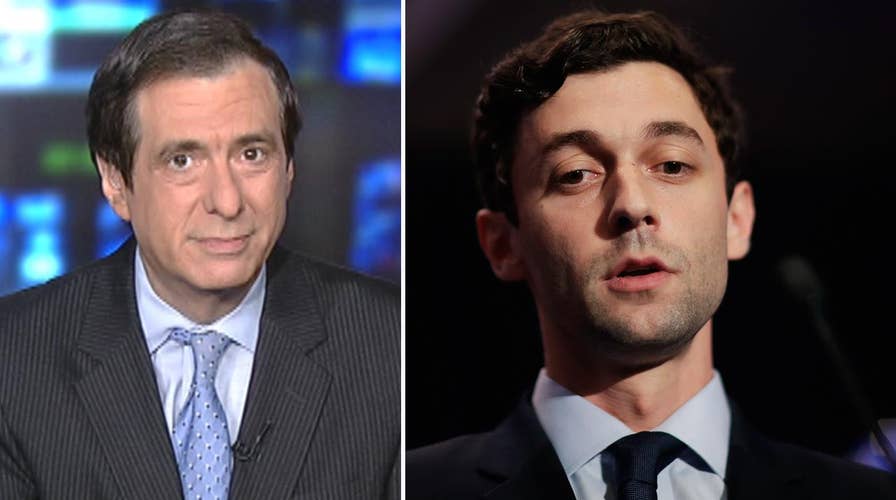Kurtz: Dems depressed after Georgia loss
'MediaBuzz' host Howard Kurtz weighs in on some Democrats like Chris Murphy claiming too much time is spent covering the Russia investigation and not enough time covering economics
Chris Murphy, a Democratic senator from Connecticut, made some candid comments that caught my eye yesterday.
When he’s back home, Murphy said, he sometimes chats people up on a commuter bus, and “they are never talking about issues like Russia. They are not talking, frankly, what’s on cable news at night.”
And then, in the “Morning Joe” interview, he took a whack at his own party: “The fact that we have spent so much time talking about Russia has been a distraction from what should be the clear contrast between Democrats and the Trump agenda, which is on economics.”
Bingo. Running mainly against Donald Trump didn’t work for the Dems in 2016, and it’s not working now.
The news peg for these recriminations, of course, is the Democrats losing Tuesday’s special election for a House seat in Georgia. I never spent much time on that race because I never believed that Jon Ossoff, despite raising $25 million, was going to win in a heavily Republican district that he didn’t even live in.
But since the media collectively declared it a referendum on Trump—and would have gone haywire if Ossoff had won—there is a reckoning about what the Democratic Party stands for.
Ohio Democratic congressman Tim Ryan told the New York Times that his party is “toxic” in large swaths of the country: “Our brand is worse than Trump. We can’t just run against Trump.”
The president, for his part, tweeted that “the Special Elections are over and those that want to MAKE AMERICA GREAT AGAIN are 5 and O! All the Fake News, all the money spent = 0.”
This reminds me of the endless debates after Hillary Clinton’s loss about why she didn’t have much of an economic message.
I wrote yesterday about how the special counsel’s investigation of President Trump now dominates the media and political culture. But to the extent that the Democrats use much of their energy bashing Trump, they are failing to connect with voters who aren’t addicted to Beltway scandals.
Times conservative Ross Douthat says the party’s problem is that while the country has moved left, the Democrats have moved even more left:
“On immigration, for instance, public opinion had actually become modestly more liberal in the years leading up to Trump — but the Democrats are now almost an open-borders party, so even modest skepticism about immigration tends to push voters toward the Republicans. On abortion, where public opinion has been stable, Democrats have ditched their old attempts at moderation, undercutting the gains that secularization and the liberal turn on other culture-war issues should have naturally delivered them. And the party’s base has no patience anymore for the kind of careful triangulation that Bill Clinton practiced on issues like crime and welfare policy, or for the then-Democratic voters who were reassured by it.”
We in the press always hype special elections. It would not have been a crucial blow to Trump if Ossoff had won in Georgia, and it’s not a devastating blow to Democrats that, despite raising $25 million, he couldn’t win in a heavily Republican district.
But his loss could serve as a wakeup call for liberals who think the Trump presidency is so disastrous that they’re on track to win the House next year. That may prove to be a mirage.





